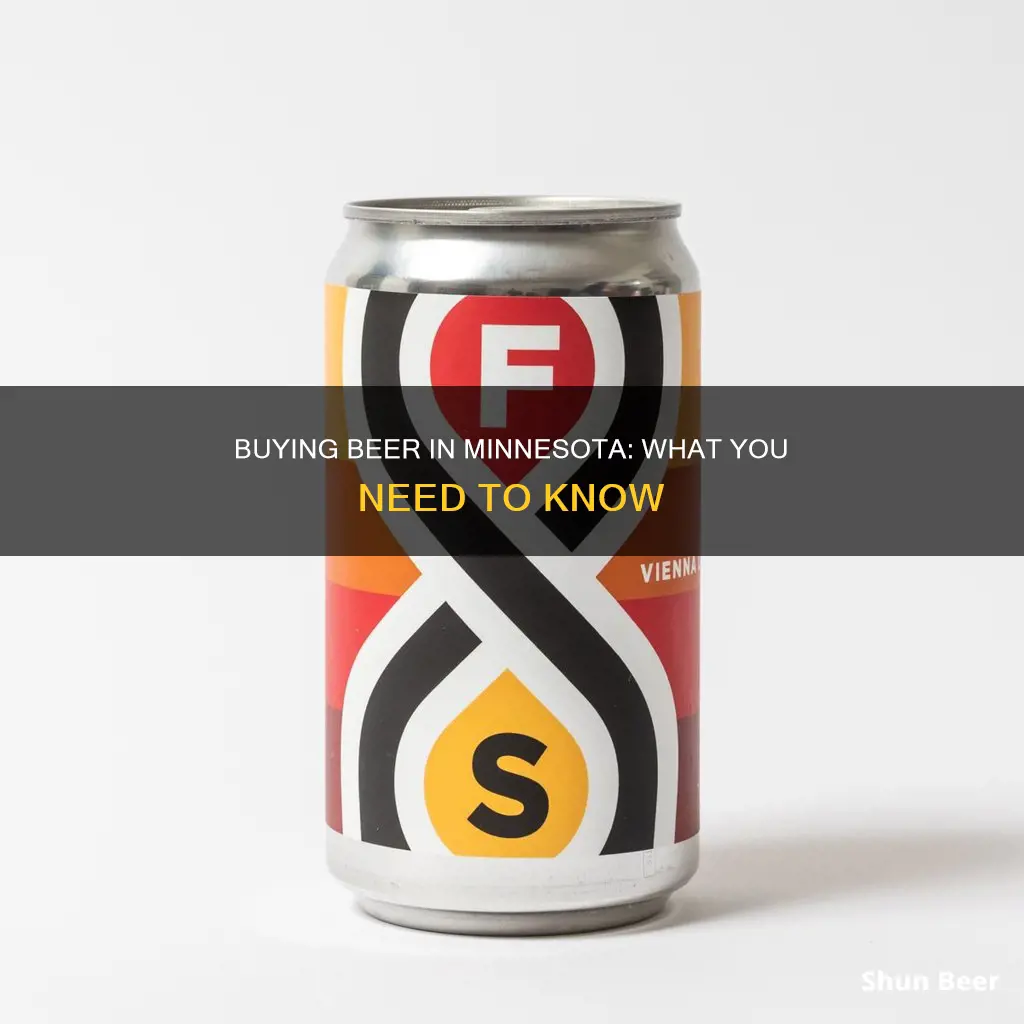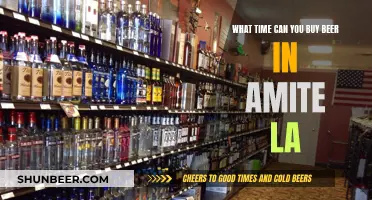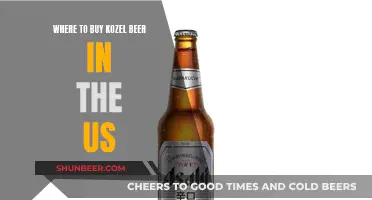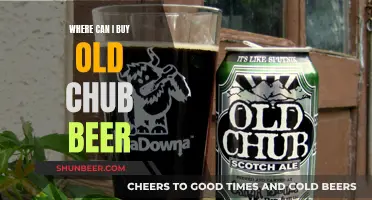
Minnesota's liquor laws have been a topic of debate in recent years, with changes being made to allow Sunday liquor sales and the option to order alcohol for delivery or online. While the state previously prohibited the sale of wine and strong beer in grocery and convenience stores, some lawmakers are pushing for this to change, arguing that it is inconvenient for residents and that Minnesota's laws are outdated. Minnesota now allows off-premise alcohol sales on Sundays and has a range of liquor shops that deliver beer, wine, and liquor to residents' doorsteps.
What You'll Learn

Minnesota's alcohol sales laws
Off-Premise Alcohol Sales
Minnesota allows off-premise alcohol sales (i.e. for consumption elsewhere) during specific hours. From Monday to Saturday, off-premise sales are permitted from 8 am to 10 pm. On Sundays, the hours are reduced, with sales allowed only from 11 am to 6 pm. Off-premise sales are prohibited on certain holidays, including Thanksgiving, Christmas Eve after 8 pm, and all day on Christmas Day.
On-Premise Alcohol Sales
On-premise alcohol sales, where alcohol is consumed at the place of purchase, are permitted seven days a week from 8 am to 2 am. This includes bars, restaurants, clubs, and hotels.
Retailer Types and Alcohol Types
The type of alcohol that can be sold varies depending on the retailer. Grocery stores are only allowed to sell beer, and that beer must have an alcohol by volume (ABV) of less than 3.2%. Municipal liquor stores have a monopoly on the sales of wine and distilled spirits (also known as liquor or hard liquor). Big-box stores like Walmart and Target, as well as CVS, can sell beer, but only if they have obtained a state license. Gas stations with retail outlets face similar restrictions, as they can only sell beer with an ABV of 3.2% or lower.
Age Restrictions
Minnesota has a minimum age requirement of 21 years for purchasing alcohol. To serve alcohol in the state, individuals must be at least 18 years old.
Open Container Law and DUI
Minnesota has an open container law, which means that any open bottles of alcohol must be transported in the trunk of a vehicle. The state also has a "per se intoxicated" rule, which means that anyone with a blood alcohol content (BAC) above 0.08% can be convicted of driving under the influence (DUI).
Alcohol Taxes
Minnesota imposes excise taxes on alcohol sales, which vary depending on the type of beverage. The tax on beer is $0.15 per gallon, $0.30 per gallon for wine, and $5.03 per gallon for distilled spirits. These taxes are in addition to the federal alcohol excise taxes, which are also included in the price of alcoholic beverages sold in Minnesota.
Beer Buying in Illinois: Morning Restrictions and Laws
You may want to see also

Beer in grocery stores
Minnesota has some of the most restrictive laws in the country when it comes to retail competition in the liquor business. Grocery stores in Minnesota can only sell beer with an alcohol by volume (ABV) of less than 3.2%. This is unique to Minnesota, as other states have moved away from selling lower-alcohol beer.
Some grocery stores have separate liquor stores attached to them, with a different entrance, which can sell wine and spirits. However, these must be located in cities that do not have municipal liquor stores.
Minnesota's restrictive laws have resulted in higher beer and wine prices compared to other states like Wisconsin, which has fewer restrictions. However, spirits are cheaper in Minnesota due to a law that encourages competition among spirits wholesalers.
There have been efforts to change the laws to allow grocery stores to sell wine and strong beer, but these have been opposed by liquor stores, distributors, and the Teamsters union. There are concerns that changing the laws could negatively impact small liquor stores and municipal liquor stores, which provide revenue for city services.
While Minnesota's laws may change in the future, for now, consumers are limited to purchasing lower-alcohol beer from grocery stores.
Virginia's Sunday Noon Beer Buying Law Explained
You may want to see also

Municipal liquor stores
Minnesota has a unique system for selling alcohol, with municipal liquor stores being the only place to buy wine and distilled spirits. These municipal stores are government-owned and operated, and they play a significant role in the state's alcohol sales and revenue.
The Minnesota Municipal Beverage Association (MMBA) is a statewide organisation that represents these on-sale and off-sale alcohol facilities. The MMBA has been in existence since 1934, and its primary goal is to help its members manage their operations more efficiently and economically. The association also promotes responsible drinking and works to generate income for their communities. According to the MMBA, Minnesota's municipal beverage facilities generate approximately $423 million in sales annually, with about $36 million in net profits going to various city funds.
In 2020, during the COVID-19 pandemic, the 213 municipal liquor stores across 179 cities in Minnesota had a record-breaking year, with sales totalling $410.6 million. This was a $38.5 million increase from 2019. However, the pandemic also impacted in-person services, and on-sale locations, which rely on sit-down customers, generally struggled. A total of 37 cities reported losses at their municipal liquor stores in 2020, and 24 cities faced the possibility of closing these stores due to losses in two of the last three years, triggering a mandatory hearing.
Augustiner Beer: Available in the USA?
You may want to see also

Alcohol excise tax
Minnesota's alcohol excise tax is relatively low compared to other states. The tax is levied on distilled spirits, beer, malt beverages, and wine manufactured, imported, and sold within the state. The specific rates are as follows:
- Beer Tax: $0.15 per gallon
- Wine Tax: $0.30 per gallon
- Distilled Spirits Tax: $5.03 per gallon
Licensed manufacturers or wholesalers who sell distilled spirits in Minnesota must file a Distilled Spirits Excise Tax Return and pay the corresponding tax. The tax rate varies according to the type of alcohol and is outlined in detail by the Minnesota Department of Revenue. For instance, low-alcohol dairy cocktails are taxed at a lower rate of $0.08 per gallon or $0.02 per liter. Additionally, a bottle tax of $0.01 is applied to each container holding 200 milliliters or more of distilled spirits.
The state also imposes a Federal alcohol excise tax, which is included in the price of alcoholic beverages sold in Minnesota. These rates vary depending on the type of beverage:
- Beer Federal Excise Tax: $18.00 per 31-gallon barrel or $0.05 per 12-oz can
- Wine Federal Excise Tax: $1.07 to $3.40 per gallon or $0.21 to $0.67 per 750ml bottle
- Distilled Spirits Federal Excise Tax: $13.50 per proof gallon or $2.14 per 750ml 80-proof bottle (40% ABV)
Buying Beer at 7-Eleven: What's the Deal?
You may want to see also

Alcohol delivery
If you're looking for an easy and convenient way to get your favourite alcoholic beverages in Minnesota, then you're in luck! Alcohol delivery is legal in the state, and there are several options available to you. Here's everything you need to know about alcohol delivery in Minnesota:
Legal Requirements:
Firstly, it's important to note that Minnesota has specific laws regarding the sale and consumption of alcohol. The legal drinking age in Minnesota is 21, and you must be 18 years old to serve alcohol. The state also has a "per se intoxicated" rule, meaning anyone with a blood alcohol concentration (BAC) above 0.08% can be convicted of driving under the influence (DUI). These laws apply to both in-person purchases and deliveries.
Delivery Services:
Minnesota offers a range of alcohol delivery services, such as Drizly and Minibar Delivery, that allow you to order beer, wine, and liquor directly to your doorstep. These services typically promise delivery within 30 to 60 minutes, making them a quick and convenient option. You can browse their selection of alcoholic beverages, place your order online or through their apps, and have it delivered to your home or even your lake house!
Retailers and Availability:
Minnesota has strict regulations regarding the sale of alcohol. Beer with less than 3.2% alcohol by volume (ABV) can be purchased at grocery stores and gas stations. However, for wine and distilled spirits, you'll need to visit municipal liquor stores or order them through delivery services. Some towns in Minnesota also have a monopoly on the sales of wine and spirits, so be sure to check the local regulations in your area.
Delivery Fees and Tipping:
Most delivery services charge a small fee for each order, typically around $5, to help offset the costs incurred by their retail partners. This fee is usually indicated on the product pages of the delivery websites or apps. When it comes to tipping your delivery driver, many services offer the option to add a tip during checkout, or you can choose to tip in cash upon delivery.
Age Verification:
Don't forget that age verification is required for alcohol deliveries in Minnesota. You'll need to show a valid ID to your delivery driver, and some services may also offer contactless scanning options for added safety and convenience.
With these details in mind, you can now confidently navigate alcohol delivery options in Minnesota. Whether you're hosting a party or simply relaxing by one of the state's beautiful lakes, you can enjoy your favourite beverages with ease and convenience.
Stroh's Beer: Available at Corktown Brewery?
You may want to see also
Frequently asked questions
Yes, it is now legal to order beer online in Minnesota.
Yes, Minnesota now allows the sale of off-premise alcohol sales on Sundays.
Minnesota grocery stores are able to sell strong beer, but only if they do it in a separate space with a separate entrance.







